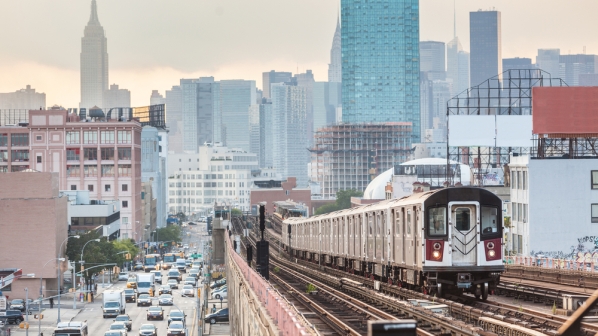The proposal aims to create dedicated and sustained funding streams for the agency, and includes the joint endorsement of congestion pricing and a plan to reorganise MTA.
The first point on the list calls for the MTA to develop a reorganisation plan to make the agency more efficient and effective. This involves centralising common tasks such as construction management, legal, engineering, procurement, human resources and advertising, while the six existing entities - NYCT, LIRR, Metro-North, MTA Capital Construction, MTA Bus and Staten Island Railway - will focus on the day-to-day management of their primary operations.
The second item includes a congestion pricing financing model, with an electronic tolling zone for vehicles using streets south of 61st Street in Manhattan. The tolls would provide discounts for off-peak hours, and emergency vehicles would be exempt. MTA will also receive revenue from a new internet sales tax in New York City and a cannabis excise tax. The new revenue streams would be allocated to funding capital needs, with priority given to the subway system, new signalling, new subway trains, track and car repair, accessibility, buses and bus system improvements and further investments in expanding transit availability.
MTA will be limited to mass transit fare increases of 2% per year, and all board appointments will be modified so that all terms end with the appointing elected officials’ tenure.
The plan also calls for a partnership between the state and the city to combat fare evasion. The state will work with MTA, city and district attorneys to develop an enforcement strategy, with both personnel and station design modifications that do not criminalise fare evasion but instead prevent the practice, sanction violators and increase enforcement.
MTA audit
An audit on MTA will be carried out by January 2020 to determine its actual assets and liabilities, as Cuomo and de Blasio said its current forecasts, projections and capital plans “strain financial credibility.”
In addition, the plan calls for:
- the plan to be reviewed by a committee of transportation, engineering and government experts who have no financial ties to MTA
- all of MTA’s major projects will be pursued as a design-build, with all major construction projects to be reviewed by independent construction and engineering experts headed by the Deans of Cornell School of Engineering and Columbia School of Engineering. The group will also review the plans for signal system upgrade methodology and “decide the best system to use, specifically comparing Communications Based Train Control (CBTC) to Ultra-Wide-Band (UWB) technology”
- MTA will accelerate the completion of the Subway Action Plan, and
- Cuomo and de Blasio will work closely with the legislature on provisions in this framework.
The 10-point plan can be read in its entirety here.
New plan raises multiple questions
However, the plans raises a number of questions as outlined by the editor-in-chief of IRJ’s sister publication Railway Track & Structures, Mr Paul Conley.
“At present, much of the plan is unclear,” Corselli said. “For example, the engineering deans don’t claim to have expertise in signalling. So it seems a stretch to task them with making choices related to CBTC. Nor does it seem to make sense to compare CBTC, a method of train control, with UWB, a method of sending communications.
"The plan would also seem to take away New York City Transit president Mr Andy Byford’s ability to manage engineering, contracting and construction. In addition, the funding mechanisms envisioned in the plan, including congestion pricing for motor vehicle tolls and a tax on legalised marijuana, would require approval from legislators.”

